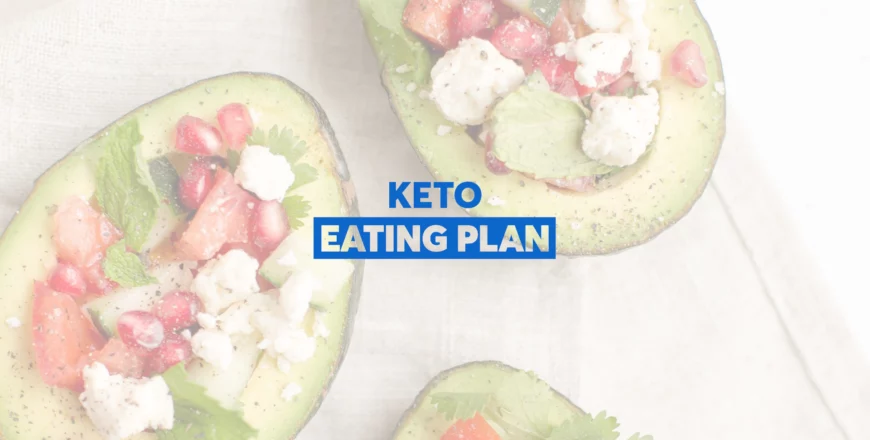
Course 25: Keto eating plan
- Description
- Curriculum
- FAQ
- Reviews

Course Description (What the course is about)
The “Exploring the Ketogenic Diet” course provides an in-depth understanding of the ketogenic diet, a low-carbohydrate, high-fat eating approach that has gained popularity for its potential health benefits. Members will learn about the science behind ketosis, the mechanics of the diet, its potential benefits and drawbacks, and how to effectively implement and maintain a ketogenic lifestyle. Through comprehensive lessons, members will gain the knowledge and tools needed to make informed decisions about incorporating the ketogenic diet into their lives.
Course Outcomes (What you’ll learn)
By the end of this course, members will have:
- Understand the science behind ketosis and the ketogenic diet.
- Calculate and implement appropriate macronutrient ratios for their dietary needs.
- Plan and prepare balanced ketogenic meals and snacks.
- Make informed decisions about the potential benefits and drawbacks of the ketogenic diet.
- Navigate challenges and obstacles while following the ketogenic lifestyle.
- Evaluate their own progress and monitor ketone levels effectively.
- Decide whether the ketogenic diet aligns with their long-term health and wellness goals.
-
1Course 25: Keto Eating plan - Introduction
-
2Lesson 1: Understand the science behind ketosis and the ketogenic diet.
-
3Lesson 1: Understand the science behind ketosis and the ketogenic diet Quiz
-
4Lesson 2: Calculating and Implementing Appropriate Macronutrient Ratios for Dietary Needs
-
5Lesson 2: Calculating and Implementing Appropriate Macronutrient Ratios for Dietary Needs Quiz
-
6Lesson 3: Planning and Preparing Balanced Ketogenic Meals and Snacks
-
7Lesson 3: Planning and Preparing Balanced Ketogenic Meals and Snacks Quiz
-
8Lesson 4: Making Informed Decisions about the Potential Benefits and Drawbacks of the Ketogenic Diet
-
9Lesson 4: Making Informed Decisions about the Potential Benefits and Drawbacks of the Ketogenic Diet Quiz
-
10Lesson 5: Navigating Challenges and Obstacles While Following the Ketogenic Lifestyle
-
11Lesson 5: Navigating Challenges and Obstacles While Following the Ketogenic Lifestyle Quiz
-
12Lesson 6: Evaluating Progress and Monitoring Ketone Levels Effectively
-
13Lesson 6: Evaluating Progress and Monitoring Ketone Levels Effectively Quiz
-
14Lesson 7: Deciding Whether the Ketogenic Diet Aligns with Long-Term Health and Wellness Goals
-
15Lesson 7: Deciding Whether the Ketogenic Diet Aligns with Long-Term Health and Wellness Goals Quiz
What is the ketogenic diet?
The ketogenic diet is a low-carbohydrate, high-fat eating approach that aims to induce a state of ketosis in the body. In ketosis, the body shifts from using glucose as its primary energy source to using fat-derived molecules called ketones.
What are the main macronutrient ratios in the ketogenic diet?
The typical macronutrient distribution in the ketogenic diet is high in fats (usually around 60-75% of total calories), moderate in protein (about 20-30% of total calories), and low in carbohydrates (generally around 5-10% of total calories).
What foods can I eat on a ketogenic diet?
Keto-friendly foods include meats, poultry, fish, eggs, non-starchy vegetables, healthy fats (such as avocados, nuts, and olive oil), and dairy products with low carbohydrate content
Foods high in carbohydrates, like grains, sugars, and starchy vegetables, are typically restricted.
Foods high in carbohydrates, like grains, sugars, and starchy vegetables, are typically restricted.
What are the potential benefits of the ketogenic diet?
The ketogenic diet is associated with weight loss, improved insulin sensitivity, reduced inflammation, enhanced mental clarity, and some individuals experience better energy levels. It has also been explored as a potential therapy for certain medical conditions like epilepsy.
Are there any risks or challenges associated with the ketogenic diet?
Some individuals may experience the "keto flu" during the initial adaptation phase, which can include symptoms like fatigue and headaches. Nutrient deficiencies and gastrointestinal issues are possible if not managed properly. Long-term sustainability and potential drawbacks should also be considered.
Can I exercise while on a ketogenic diet?
Yes, exercise can be integrated into a ketogenic lifestyle. However, during the adaptation phase, energy levels might fluctuate. It's important to ensure adequate hydration and electrolyte intake, especially when engaging in physical activity.
Is the ketogenic diet suitable for everyone?
The ketogenic diet may not be suitable for individuals with certain medical conditions, including kidney issues, pancreatitis, or metabolic disorders. Pregnant or breastfeeding women, athletes with high energy demands, and those with a history of disordered eating should approach the diet cautiously and under medical supervision.
How do I know if I'm in ketosis?
Ketosis can be monitored by measuring ketone levels in the blood, breath, or urine. Blood ketone meters provide the most accurate measurement.
Can I follow a vegetarian or vegan ketogenic diet?
While it can be more challenging, it's possible to follow a vegetarian or vegan ketogenic diet by focusing on plant-based sources of fats and proteins, such as avocados, nuts, seeds, and non-starchy vegetables.
Is the ketogenic diet sustainable in the long term?
The sustainability of the ketogenic diet varies from person to person. Some find it sustainable and enjoy the benefits, while others may find the restrictions challenging to maintain over time.
Note: Before embarking on the ketogenic diet, it's advisable to consult a healthcare professional, especially if you have underlying health conditions or concerns. This information is for general educational purposes and is not a substitute for personalized medical advice.
Note: Before embarking on the ketogenic diet, it's advisable to consult a healthcare professional, especially if you have underlying health conditions or concerns. This information is for general educational purposes and is not a substitute for personalized medical advice.
Stars 5
3
Stars 4
0
Stars 3
3
Stars 2
0
Stars 1
0








